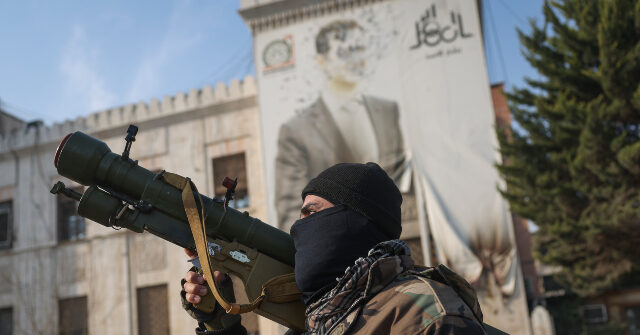On a recent episode of CNN’s “The Lead,” Senator Chris Murphy from Connecticut addressed the pressing issue of chemical weapons in Syria amidst ongoing chaos in the region. He emphasized that the United States faces a critical choice: to either destroy these dangerous weapons or ensure their secure management. Murphy’s remarks highlight a growing concern that groups like al-Qaeda and ISIS, as well as a new coalition government in Syria with uncertain intentions, could potentially gain access to these weapons of mass destruction. This poses a significant risk not only to stability in Syria but also to broader global security.
Murphy articulated that both the U.S. and Israel share serious concerns regarding the threat posed by chemical weapons amidst the turmoil in Syria. He noted that the instability in the region increases the likelihood of these weapons falling into the hands of extremist groups. His comments point to a critical urgency for the international community to act decisively to mitigate this threat. The senator underscored that it is vital to either secure these weapons or destroy them before they become a tool for terror, particularly in light of the lingering chaos and fragmentation within Syria.
The senator’s remarks also touched on the complexities of the Syrian conflict, particularly with the emergence of a new coalition government. He expressed skepticism about the ability of this new group of rebels, some of whom have connections to al-Qaeda and other extremist factions, to reform and establish a government that promotes inclusivity and security for all citizens. Murphy emphasized the need for vigilance, suggesting that while there may be a desire to trust this new leadership, one must be prepared for the worst-case scenario, necessitating preemptive measures such as military strikes.
Furthermore, Senator Murphy mentioned the leverage the United States holds over the new Syrian government due to its military presence in the country. This leverage could play a critical role in ensuring that the new leadership adheres to international norms regarding the handling of chemical weapons. He pointed out that the situation in Syria is still fluid, and thus, it is too early to make definitive judgments about the capabilities or intentions of the new regime. This indicates a cautious approach to U.S. foreign policy as it navigates the complexities of Syrian politics.
Murphy’s statements come in the context of ongoing military actions aimed at containing the threat of chemical weapons. The senator indicated that American military initiatives are not only reactive but also proactive, designed to prevent any escalations that could arise from a power vacuum in Syria. He argues that securing or eliminating the chemical arsenals should be a priority to maintain regional security and prevent dangerous factions from exploiting the situation for their gain.
In conclusion, Senator Murphy’s insights underscore a critical moment in U.S. foreign policy regarding Syria. His call to address the issue of chemical weapons emphasizes the grave risks posed by emerging power dynamics in the region. The complexities of the Syrian conflict demand careful consideration and strategic action to ensure that these weapons do not fall into dangerous hands. As the international community continues to address the humanitarian and security challenges posed by the Syrian crisis, Murphy’s statements reflect the urgent need for decisive action to prevent further destabilization.

